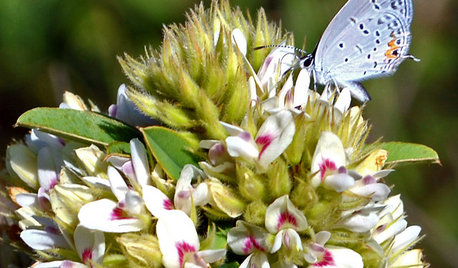Organic Winterizer Fertilizer
jurgy
16 years ago
Related Stories

GARDENING GUIDESGet on a Composting Kick (Hello, Free Fertilizer!)
Quit shelling out for pricey substitutes that aren’t even as good. Here’s how to give your soil the best while lightening your trash load
Full Story
GARDENING GUIDESHow to Switch to an Organic Landscape Plan
Ditch the chemicals for a naturally beautiful lawn and garden, using living fertilizers and other nontoxic treatments
Full Story
GARDENING GUIDES5 Prairie Wildflowers That Can Heal Your Soil
Get free, organic soil fertilizer with nitrogen-pumping plants that draw pollinators too
Full Story
GARDENING GUIDESGarden Myths to Debunk as You Dig This Fall and Rest Over Winter
Termites hate wood mulch, don’t amend soil for trees, avoid gravel in planters — and more nuggets of garden wisdom
Full Story
GARAGES8 Tips for a Supremely Organized Winter Garage
Snow and mud make a disorganized garage even worse. These ideas for storage and planning will keep your space clean and dry
Full Story
HOUSEPLANTSOutsmart Winter — Make Houseplants of Your Garden Growers
No need to watch Jack Frost play Wreck the Rosemary. Bring your garden inside for the winter, using containers and these guidelines
Full Story
GARDENING GUIDESHow to Keep Your Citrus Trees Well Fed and Healthy
Ripe for some citrus fertilizer know-how? This mini guide will help your lemon, orange and grapefruit trees flourish
Full Story
GARDENING GUIDESPacific Northwest Gardener: What to Do in September
Put in cool-weather veggies, fertilize your lawn and tidy the garden this month before chilly weather arrives
Full Story
SHOP HOUZZShop Houzz: Winning Winter Storage
Help your home stay neat and sans muck with dedicated organizers for all your winter stuff
Full Story0

PRODUCT PICKSGuest Picks: Make That Winter Entryway Work Better
Keep slush and muck at the door with stylish boot trays, hooks, baskets and rugs
Full Story





morpheuspa (6B/7A, E. PA)
dchall_san_antonio
Related Professionals
Ashburn Landscape Architects & Landscape Designers · Forest Acres Landscape Architects & Landscape Designers · Buford Landscape Contractors · Desert Hot Springs Landscape Contractors · Indio Landscape Contractors · Olympia Landscape Contractors · Oviedo Landscape Contractors · New Carrollton Landscape Contractors · Reisterstown Landscape Contractors · Maple Heights Landscape Contractors · West Hollywood Swimming Pool Builders · Fort Lee Fence Contractors · Norwalk Fence Contractors · Oakdale Fence Contractors · Turlock Fence Contractorsrutgers1
morpheuspa (6B/7A, E. PA)
dchall_san_antonio
smitty5952
deerslayer
rutgers1
deerslayer
mynextlawn
rcnaylor